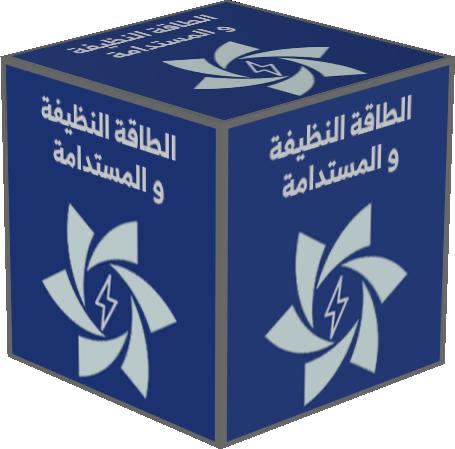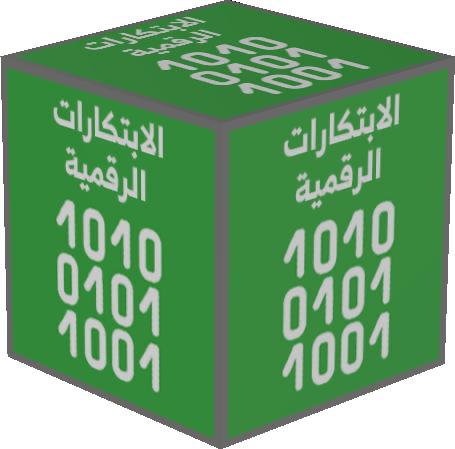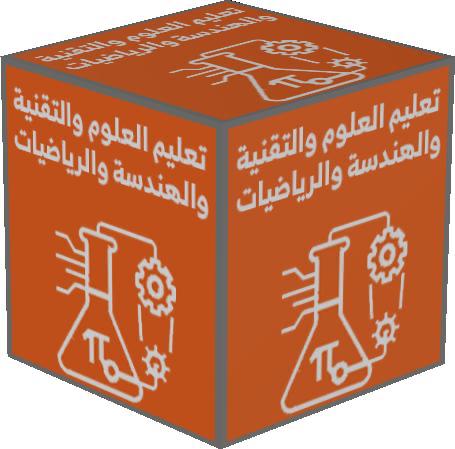Directed Research Articles' Program

Within a series of institutional Funding programs for research and development at King Saud University, which are supported by the Ministry of Education, the Deanship of Scientific Research launches the initiative of the "Directed Research Articles’ Program", which aims to achieve excellence by supporting areas of national research priorities, thus contributing to achieving the University's leadership in the quality of research production and plans for development and assistance in solving community problems. Through this program, the Deanship seeks to adopt a research strategy capable of achieving the goals of the institutional Funding program by exploiting the University's resources and capabilities represented in the strong infrastructure and distinguished human cadres.
In line with the research priorities identified at King Saud University that exist within the national research priorities, the program provides support for distinguished research projects directed at one of the research concentrations in research activities within the areas of six research priorities identified by the University:
1- Clean and sustainable energy
2- Health and human well-being
3- Digital innovations
4- Food, water, and environment
5- Petrochemicals
6- Science, technology, engineering, and mathematics education
Which contributes to providing distinguished scientific production and developing the map of research, development and innovation at the university
in a way that achieves the goals of the Kingdom's Vision 2030.
- The applicant researcher and the participating research team should be of faculty members, and their likeness at King Saud University.
- The research team may include consultant researchers from outside the university with a maximum of two.
- It is possible to collaborate with researchers (not included in the application form) from outside the university, whether from inside or outside the Kingdom, with no more than 30% of the names of the research team on the research outputs.
- The proposed research proposal should be within one of the research interests of the university’s six research priorities and in the field of specialization of the research team.
- The submitted research proposal should be prepared based on the guideline.
- The principal investigator and the research team should adhere to the performance indicators provided with the application request as a tool for evaluating the results and the research project's progress report.
- Performance indicators will be treated as tools for assessing disbursement and evaluating the entire research project spent and expenditure.
- When the minimum performance indicators are not presented, spending on the research project will stop and the accounting will be done based on linking the performance rate with the value of what had been spent, and the deanship has the right to request the return of the disbursement in case of not presenting what is suitable for the performance indicators.
- The applicant researcher has to publish a minimum of two research scientific papers, and ONLY original scientific articles (Research Article Type) will be accepted.
- It is required that the scientific paper should be published in a journal included in the (Web of Science-ISI) database and indexed within the Science Citation Index Expanded-SCI-E), or the Social Science Citation Index Expanded-SSCI- E), or the Arts & Humanities Citation Index Expanded- A & HCI, and should be cited in the first quarter (Q1) or the second quarter (Q2) according to the Journal Citation Reports- JCR average (AJIF) when published.
- In the event of submitting a patent, only patents registered and granted by the accredited offices: The American office, the European office, the Japanese office, and the King Abdul-Aziz City for Science and Technology will be accepted.
- A dedicated team will evaluate presented innovations and prototypes.
- Both the first and corresponding authors should be from King Saud University in the research outcome.
- The principal investigator (PI) should be the first author or the correspondent author in the scientific product.
- The ONLY entity to be thanked for this research work is the Agency for Research and Innovation in the Ministry of Education as the SOLE funding agency, and not to thank any other funding party inside or outside the Kingdom.
- The principal investigator and the co-researchers affiliated with King Saud University must indicate their belonging to the university as a sole affiliation in the scientific product.
- All the research team and the correspondent researcher from King Saud University must use the King Saud University e-mail in all correspondence regarding the scientific product.
- In the case of scientific publication, research papers that exceed 20% and no more than 3% similarity will not be accepted from the same source.
- In the event of establishing a laboratory, the research team must place a sign (or something similar) stating that the laboratory is funded by the Institutional Funding at King Saud University.
- The necessity to commit to the rules and standards of ethics for scientific research.
- Intellectual property rights apply to the articles of the Institutional Financing Agreement.
| Research Priorities | Research Activities | Research Tracks |
|
Clean & sustainable energy
|
Field of energy storage |
Development of low-cost battery technologies for arid climates and their optimization for operation in grids and micro-grids |
| Development of novel low-cost thermal storage technologies for diurnal and seasonal operation | ||
|
Field of energy efficiency through digitalization |
Smart monitoring and simulation systems to raise energy efficiency in public and commercial buildings | |
| Development of wireless control systems to replace existing BMS systems | ||
| Field of recycling waste and converting it into energy | Conversion of wastes into energy via biological and thermochemical methods | |
| Development and control of hybrid waste-to-energy systems with other energy systems | ||
| Field of solar energy | Innovation in integration of various solar technologies in the electric grids for reliable operation | |
| Advanced components and materials for high-temperature next-generation CSP systems | ||
| Field of developing peaceful nuclear energy | Nuclear Technology by Radiation Grafting for Development of New Generation Membranes with High Permeability for Desalination of Sea Water | |
| Novel techniques for treatment of contaminated water by radioactive materials | ||
| Field of nanotechnology to raise energy efficiency | Development of nanocatalysts for electrochemical CO2 reduction | |
| Development of nanocatalysts for hydrogen production from fossil, water, and waste resources | ||
|
Health & human well-being
|
Field of infectious diseases | Innovating new and advanced methods for the rapid detection of emerging infectious diseases |
| Determining the mechanisms of antibiotic resistance of bacteria and developing new antibiotics | ||
| Field of chronic diseases | Developing accurate diagnostic tests for chronic diseases and Cancer | |
| Determine the etiology and pattern of immune dysregulation disorders and develop effective therapies | ||
| The use of personalized precision medicine in chronic diseases and oncology | ||
| Field of developing health care systems | Developing tools and systems to extend the average healthy human life | |
| Applications of emerging technologies in the development of healthcare systems, such as applications of artificial intelligence and big data analysis | ||
| Improving healthcare continuity using telehealth | ||
| Field of mental health | Determine the role of genetic factors in the etiology of mental disorders and response to treatment | |
| The pattern of addiction-related disorders in Saudi Arabia | ||
| The total direct and indirect burden of mental disorders in Saudi Arabia | ||
| Environment for cleaner air, less pollution, and reduced health risks | Sandstorm health hazardous | |
| Developing new methods to reduce the health impacts of climate and environmental changes | ||
| Occupational health risk hazardous | ||
|
Digital innovations |
Field of digital revolution to provide high-quality health care | Data mining & data management of medical records |
| Wearables, Sensors, and Biotelemetry | ||
| Virtual/Augmented/Mixed reality applications in healthcare (Rehabilitation; AR assisted surgery; medical education; medical imaging) | ||
| Field of digital technologies for crowd management | Drones and image processing for crowd handling | |
| Crowd modelling and Simulation | ||
| Using smart wearables (rings)/mobiles for detecting/managing crowds during Hajj and Omrah, considering pandemic situation | ||
| Field of technologies for new urban expansions to support industrialization | Internet of things for secure and sustainable smart cities | |
| Efficient use of energy sources, its reliability and demand management in smart cities | ||
| Intelligent transportation systems and autonomous vehicles | ||
| Field of industrial robots | Intelligent manufacturing processes, logistics, and machines | |
| applications of robotic systems in commercial and defense sectors | ||
| Sensing devices and data processing algorithms for robotic systems | ||
|
Food, water, and environment |
Field of new advanced trends in water desalination | Renewable Energy-Driven Hybrid technologies for energy efficient desalination |
| Developing pretreatment materials & technologies (Ultrafiltration/Nanofiltration) for Reverse Osmosis Seawater Desalination | ||
| Development of effective methods for membrane filtration desalination | ||
| Developing technologies to make use of brine water | ||
| Field of threats to resources and environment facing big Cities in the future | Smart growth as a strategy to counter the negative impacts of urban sprawl on resources and the natural environment | |
| Sustainable models for rationalizing the consumption of non-renewable resources to face future challenges in major cities | ||
| Small cities and rural development as a strategy for achieving regional integration and facing environmental threats in major cities | ||
| Field of automated systems for water quality and efficient distribution | Improve the design of desalinated water pipelines to reduce the water transmission cost and increase its efficiency | |
| Developing optimized economic mathematical models based on cost-benefit analysis of water supply and demand in the Kingdom of Saudi Arabia | ||
| Automation uses for leaks early detection in public and large networks | ||
| Food, water, and environment | Assessment and preparation of digital production maps for natural resources | |
| Assessment and increase the efficiency of agricultural use of non-conventional water sources | ||
| Food supply chains (private and cooperative sectors) | ||
| Manufacturing industries of agricultural production for sustainable food security | ||
| Field of carbon with added value and new emerging waste | Converting CO2 to added value materials | |
| Evaluation of new emerged pollutants and wastes in medical, agricultural, and civil society | ||
| Methods of Carbon capture/storage/sequestrations from the environment | ||
| Field of waste and conversion of waste into valuable materials | Novel technologies for upcycling of agriculture and animal wastes into valuable products | |
| Innovative and sustainable approaches for converting industrial and construction wastes into useful products | ||
| Feasibility of implementing circular economy and biorefinery for various wastes in the kingdom of Saudi Arabia | ||
|
Petrochemicals
|
Field of using polymeric nanomaterials for water purification and disposal of pollutants and radioactive materials | Using nano-polymeric materials for water treatment |
| Development of polymeric membranes for water treatment | ||
| Development of new polymers to remove major pollutant and radioactive materials in water treatment | ||
| Field of development smart polymers | Smart polymers development for many emerging applications | |
| Developing new smart polymeric materials and additives for 3D printing applications | ||
| Development of New catalysis for petrochemical applications | ||
| Field of manufacturing valuable plastics for environment and industrial applications | Development of polymeric composites as Engineering Materials for different Industrials applications | |
| Developing new polymeric films for green houses | ||
| Manufacture of valuable plastics for different environment applications | ||
| Utilizing different recycling techniques for using locally produced polymer waste and convert it into valuable molecules | ||
|
Science, technology, engineering, and mathematics education
|
Field of science, technology, engineering, and mathematics (STEM) education in the Kingdom of Saudi Arabia | Pre-service and in-service STEM teacher programs |
| STEM learning | ||
| Field of science and mathematics education | Educational policies development based on findings from large scale educational studies | |
| Students’ performance trends in large scale education studies |
Applications will be received electronically starting from 01/06/2021 until 26/10/2021 via the website
Please complete the application form (used as a backup copy in conjunction with the application form on the website), KPIs and CVs of the members of the research team and consultants, embed as a zip file and address the name of the head of the research team and research interest and send it to the e-mail IFKSUDR@ksu.edu.sa
For more information, please contact us via the program’s e-mail: IFKSUDR@ksu.edu.sa






